Ingredient Organic
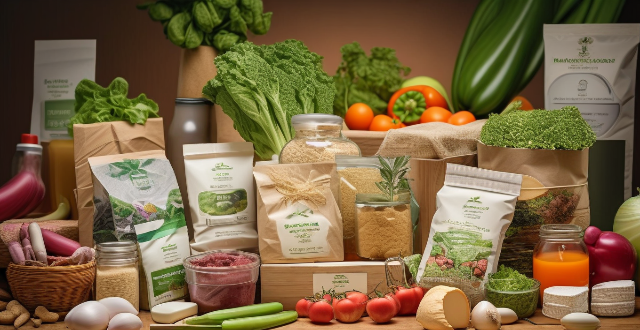
How do I know if a product is truly organic ?
Identifying truly organic products requires looking for certification labels, checking the ingredient list, researching the manufacturer or brand, and visiting farmers markets and local stores. Certification labels such as USDA Organic, Euro-leaf, and JAS indicate that the product meets specific standards for organic production. The ingredient list should indicate that all ingredients are organic and free from GMOs. Researching the manufacturer or brand can provide information about their farming practices and quality control processes. Visiting farmers markets and local stores allows you to ask questions about the products and see them firsthand. By following these tips, you can ensure that you are getting genuine organic products that are free from harmful chemicals and pesticides.

How does organic farming benefit the environment ?
Organic farming is an agricultural system that emphasizes the use of natural resources and avoids synthetic chemicals such as pesticides, herbicides, and fertilizers. This method of farming has numerous benefits for the environment, including reduced pollution, improved soil health, increased biodiversity, energy conservation, and water conservation. By choosing organic products, consumers can support these environmentally friendly practices and help to create a more sustainable future.
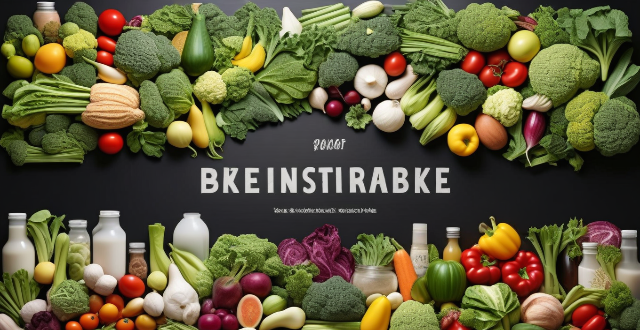
Are organic foods more expensive than non-organic foods ?
Organic foods are generally more expensive than non-organic options due to higher production costs, certification fees, and market demand. Factors such as labor intensity, lower yields, longer production time, accreditation costs, and ongoing inspections contribute to these increased costs. Despite the price difference, many consumers choose organic foods for health, environmental, and animal welfare reasons. The decision to purchase organic or non-organic often depends on individual priorities and budget.

Is organic food healthier than non-organic food ?
The debate over whether organic food is healthier than non-organic food has been ongoing for decades. While some argue that organic food offers more nutritional benefits and is better for the environment, others believe that the differences are negligible and that non-organic food can be just as healthy. In this article, we will explore both sides of the argument and try to answer the question: is organic food healthier than non-organic food? Arguments in favor of organic food include nutritional benefits, pesticide reduction, and environmental impact. Organic farming practices focus on building healthy soil and growing strong plants, which results in produce that is richer in nutrients like vitamins, minerals, and antioxidants. Additionally, organic food is grown without the use of synthetic pesticides and fertilizers, reducing the risk of harmful chemicals ending up in our food supply. Finally, organic farming practices promote biodiversity, reduce pollution, and help preserve natural resources. Arguments against organic food include minimal nutritional differences, low pesticide residues, and higher cost. While some studies have found that organic food is more nutritious than non-organic food, other research suggests that the differences are minimal. The levels of pesticides found in non-organic produce are generally well below what is considered safe by regulatory agencies, and washing produce thoroughly can further reduce pesticide residues. However, one of the biggest drawbacks of organic food is its higher cost compared to non-organic options. Ultimately, the decision of whether to choose organic or non-organic food depends on personal preference and individual circumstances. If you prioritize nutrition, reducing your exposure to pesticides, and supporting environmentally friendly farming practices, then organic food may be the way to go. However, if you are concerned about cost or believe that the nutritional differences between organic and non-organic food are minimal, then non-organic options may be suitable for you.

Are organic foods healthier than non-organic options ?
The debate over whether organic foods are healthier than non-organic options has been ongoing for decades. Proponents of organic food argue that it is better for our health due to the absence of synthetic pesticides and fertilizers, while critics contend that there is no significant difference in nutritional value between the two types of food. In this article, we explore both sides of the argument and examine the evidence to determine if organic foods are indeed healthier than their non-organic counterparts. Arguments in favor of organic foods include the lack of synthetic pesticides or fertilizers, higher nutrient content, and fewer antibiotics and hormones. However, arguments against organic foods suggest similar nutritional value, concerns about pesticide residue, and potential negative environmental impacts. Ultimately, the decision to choose organic or non-organic foods should be based on individual preferences and priorities, as well as an assessment of the available evidence regarding the health and environmental impacts of each choice.

What is the difference between natural and organic food ?
Difference Between Natural and Organic Food Natural food is minimally processed with no artificial additives, while organic food follows strict production standards without synthetic pesticides or GMOs. Organic farming promotes soil health and biodiversity, offering potential environmental benefits.
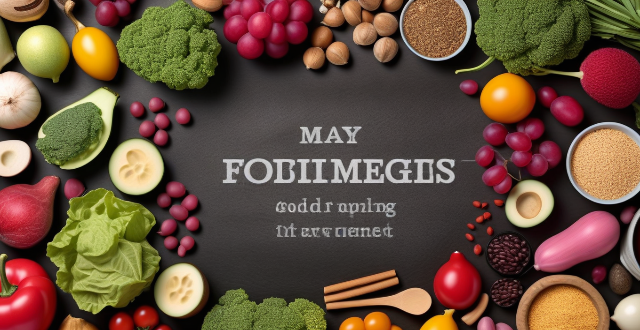
Can organic food help with weight loss ?
Organic food may aid weight loss by reducing exposure to harmful chemicals, offering higher nutrient content, having lower calorie density, and improving digestion. Incorporating organic options slowly, choosing locally grown produce, reading labels carefully, planning meals, and including protein sources can support a healthy eating plan conducive to weight loss.
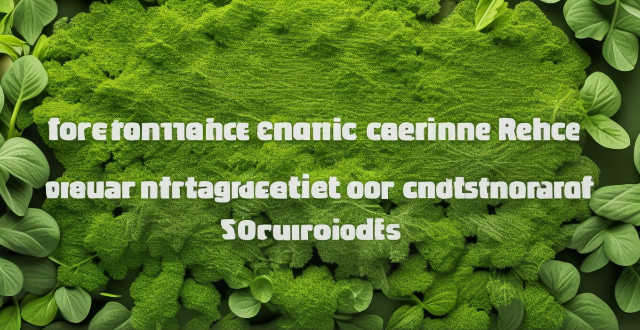
How can I support local and organic farming ?
Supporting local and organic farming is crucial for the environment, sustainable agriculture, and community development. To contribute, you can buy local and organic products, volunteer or participate in farming activities, and educate yourself and others about sustainable practices. By making informed choices, you can make a significant impact on supporting local and organic farming.
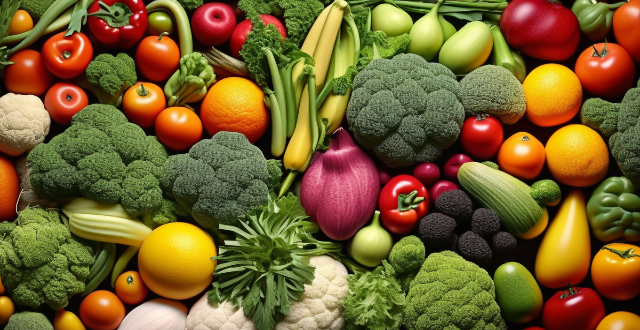
How can I make sure my fruits and vegetables are organic ?
To ensure your fruits and vegetables are organic, buyTo ensure your fruits and vegetables are organic, buy stores, grow your own using avoid contamination by washing produce thoroughly, and educate yourself on the latest research and news about organic farming.

What are the benefits of organic food ?
The provided text discusses the various benefits of organic food. The key advantages include: 1. **Health Benefits**: - No harmful chemicals, higher antioxidant levels, better nutritional content, and reduced risk of antibiotic resistance. 2. **Environmental Benefits**: - Sustainable farming practices, reduced pollution, lower energy consumption, and carbon sequestration. 3. **Economic Benefits**: - Supporting local farmers, creating job opportunities, long-term cost savings, and market diversity. Overall, choosing organic food contributes to personal health, environmental sustainability, and economic growth.
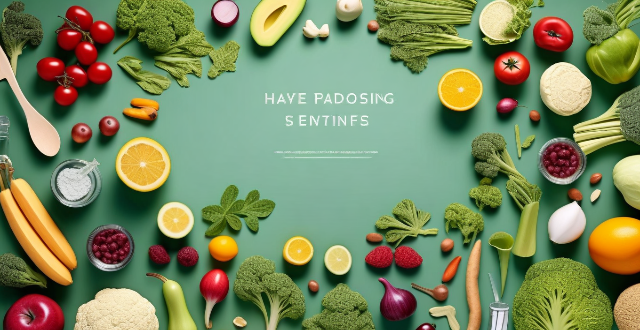
How do organic foods affect taste and nutrition ?
Organic foods have become increasingly popular due to concerns about health, environment, and sustainability. The article discusses the impact of organic farming on the taste and nutrition of food. It suggests that organic foods may have a richer flavor profile due to slower growth rates and no artificial flavorings. However, studies have shown mixed results regarding the nutrient content of organic versus non-organic foods. While some studies suggest higher levels of certain nutrients in organic produce, others find no significant difference. Additionally, organic farming practices aim to reduce pollution, conserve water, and promote biodiversity, contributing to a healthier planet. Ultimately, personal preference, budget, and individual health goals will play a role in deciding whether to opt for organic options.
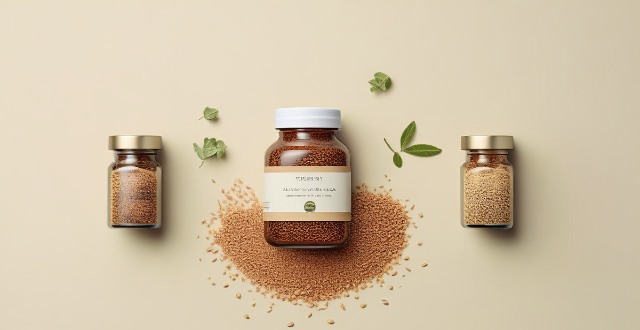
Are there any specific websites that specialize in organic products ?
There are several websites that specialize in organic products, including Amazon, iHerb, Thrive Market, Sprouts Farmers Market, Whole Foods Market, Organic Basics, Organic Authority, EcoCult, Gaia Herbs, and Dr. Bronner's. These websites offer a wide range of organic products, making it easy to find what you need online.

Is it worth paying extra for organic food ?
Organic food has become increasingly popular in recent years, with many people opting to pay extra for these products. In this article, we explore the benefits and drawbacks of organic food to help you make an informed decision. Benefits of Organic Food: - Healthier and more nutritious, with no pesticides or chemicals and higher nutrient content. - Environmental impact is reduced through sustainable farming practices that promote soil health and reduce pollution. - Animal welfare standards are higher, with better living conditions for animals and no antibiotics or hormones used in meat and dairy products. Drawbacks of Organic Food: - Higher cost due to higher production costs and limited availability in some areas. - Quality consistency can be inconsistent, with no guarantee of high quality in every product. - Shorter shelf life can lead to waste if not consumed quickly enough. Whether or not it is worth paying extra for organic food depends on personal preferences, budget constraints, and availability. Consider your own priorities and make an informed decision based on those factors.
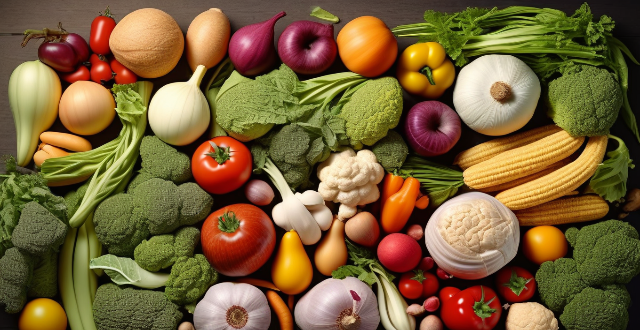
What are the best sources for buying organic food ?
The article discusses various sources for buying organic food, including farmers markets, online stores, health food stores, and community supported agriculture (CSA) programs. Each option has its own set of benefits and drawbacks, such as freshness, convenience, selection, cost, and support for local agriculture. The article emphasizes the importance of making healthy choices for oneself and family by choosing organic food.
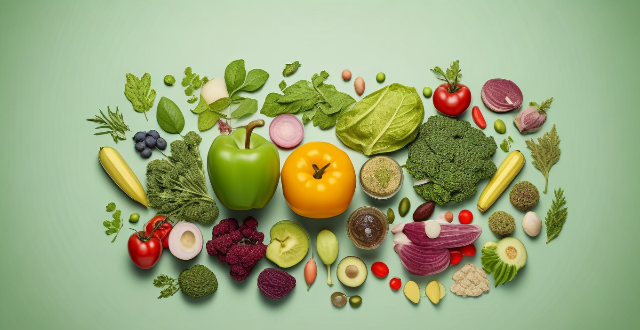
Are organic foods safer than conventionally grown foods ?
The article discusses the pros and cons of organic versus conventionally grown foods, including factors such as pesticide use, nutrient content, cost, availability, and environmental impact. While organic foods offer benefits in terms of reduced exposure to synthetic chemicals and potentially higher nutrient content, they also come with higher costs and limited availability. Conventionally grown foods are often more affordable and widely available but may contain lower levels of certain nutrients and pose potential risks from exposure to synthetic chemicals. The choice between organic and conventional foods ultimately depends on individual preferences and priorities when it comes to health, affordability, and environmental impact.

How do I read and understand organic food labels ?
Organic food labels can be confusing, but understandingOrganic food labels can be confusing, but understanding informed decisions about what you eat This certification ensures that the product has been grown and processed according to strict federal guidelines. 2. Check the List of Ingredients: Look for words like "organic," "made with organic ingredients," or "100% organic." These phrases indicate that the product has been made with organic ingredients. 3. Watch Out for Marketing Terms: Be wary of terms like "natural," "free-range," or "cage-free." Always look for the USDA Organic seal or other certifications that ensure the product meets specific standards. 4. Consider the Pesticide Residue: Even if a product is labeled as organic, there may still be some pesticide residue present. Look for products that are certified as "pesticide-free" or "certified organic." 5. Check for GMOs: Genetically modified organisms (GMOs) are not allowed in organic products. Make sure the product is labeled as "non-GMO" or "certified organic." 6. Read the Nutrition Facts Panel: Don't forget to read the nutrition facts panel on the back of the package. This will give you information about the product's calorie content, fat content, and other nutrients. Choose wisely based on your dietary needs and preferences.

Are there any natural or organic feminine care products available in the market ?
Natural and organic feminine care products have become increasingly popular as consumers seek gentler, chemical-free options for their personal hygiene. These products include natural deodorants, organic tampons and pads, shampoos and soaps made with plant-based ingredients, herbal remedies for menstrual pain relief, dietary supplements to support hormonal balance, and skincare solutions for feminine areas. By choosing these products, individuals can prioritize their health while also supporting sustainable practices in the beauty industry.
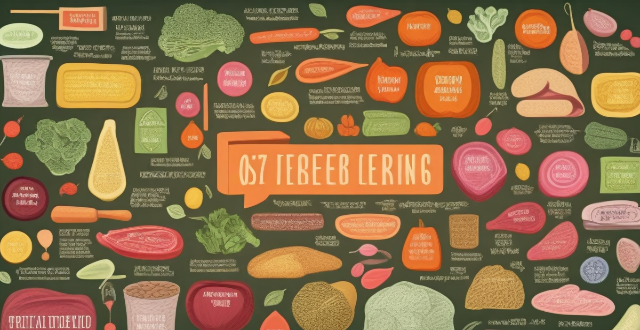
How does food labeling contribute to food safety ?
Food labeling is crucial for food safety as it provides consumers with essential information. It includes ingredient lists, nutritional information, expiration dates, manufacturing details, storage instructions, certification marks, allergy warnings, country of origin, precautionary statements, and environmental impact information. Proper labeling practices help identify ingredients, understand nutritional values, recognize potential risks, and make informed decisions about food consumption.

What are some unique ingredients commonly used in French desserts ?
French desserts are renowned for their exquisite taste and delicate textures, which are largely due to the unique ingredients used in their preparation. These include vanilla beans, almond meal, cream, butter, lemon zest, and kirsch. Each ingredient plays a crucial role in enhancing the flavor, aroma, and texture of French desserts. Understanding the importance and usage of these ingredients can help you appreciate the artistry behind French pastry making and even try your hand at creating your own delectable treats.

How do professional bartenders measure ingredients for consistency ?
Professional bartenders use a variety of tools and techniques to measure ingredients consistently. Accuracy is crucial for maintaining the same flavor profile and balancing different tastes in cocktails. Efficiency is also important, as it speeds up drink-making and allows bartenders to focus on customer interaction. Jiggers are commonly used tools for measuring both large and small quantities of liquids. Measuring spoons are used for smaller amounts like bitters or syrup. Digital scales are used for precise measurements by weight, especially for ingredients like fruit juices or syrups. Pour spouts and containers help control the flow of liquids to reduce spillage and waste. Standardization processes such as recipe cards, batching, and taste testing are also essential. Recipe cards include detailed measurements for each ingredient, helping new bartenders learn quickly and maintain consistency. Batching involves pre-mixing a large volume of a single cocktail ingredient or an entire recipe, saving time during busy shifts and ensuring uniformity. Taste tests are crucial even with precise measurements, as bartenders adjust recipes based on customer feedback and ingredient freshness. In conclusion, professional bartenders rely on a combination of tools, techniques, and standardized processes to measure ingredients consistently. This ensures that they can replicate the perfect cocktail every time, providing a high-quality experience for their customers.
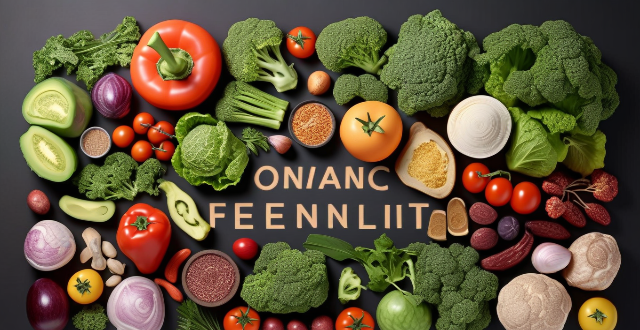
Can eating organic food prevent diseases ?
Eating organic food may offer some potential benefits for disease prevention, such as reduced exposure to pesticides and chemicals, higher antioxidant levels, and better nutrient content. However, the overall evidence supporting its ability to prevent diseases is limited, and other factors influencing disease risk should also be considered when making dietary choices. It is important to prioritize a balanced and varied diet rich in fruits, vegetables, whole grains, lean proteins, and healthy fats while minimizing intake of processed foods and sugary beverages.

Are there any shopping apps specifically designed for eco-friendly products ?
There are several shopping apps available that are specifically designed for eco-friendly products. These apps allow users to browse and purchase products that are sustainable, organic, and environmentally friendly. Some of the popular shopping apps for eco-friendly products include EcoShopper, GoodOnYou, and Think Dirty. EcoShopper is a shopping app that offers a wide range of eco-friendly products, including organic food, natural beauty products, and sustainable fashion. The app allows users to search for products based on their specific needs and preferences, making it easy to find sustainable alternatives to everyday items. GoodOnYou is a fashion app that rates brands based on their sustainability and ethical practices. The app provides users with information about a brand's environmental impact, labor practices, and animal welfare policies, allowing them to make more conscious purchasing decisions. Think Dirty is a beauty app that helps users identify the ingredients in their cosmetics and personal care products. The app provides information about the safety and environmental impact of each ingredient, allowing users to make more informed decisions about their purchases. In conclusion, these shopping apps are specifically designed for eco-friendly products, making it easier for consumers to make more conscious purchasing decisions. By using these apps, users can support sustainable brands and reduce their environmental impact while still enjoying high-quality products.

What progress has been made with organic radical polymer batteries ?
The article discusses the advancements in organic radical polymer batteries (ORPBs), highlighting their potential as a sustainable and safe alternative to traditional energy storage systems. Key improvements include increased capacity, enhanced cycling stability, and faster charge/discharge rates. Safety and environmental benefits are also noted, such as reduced toxicity and the use of renewable resources. Future prospects for ORPBs involve addressing challenges related to energy density, mechanical stability, and scalability for commercial production. Overall, ORPBs show promise as a next-generation power source for various applications, from electric vehicles to portable electronics.
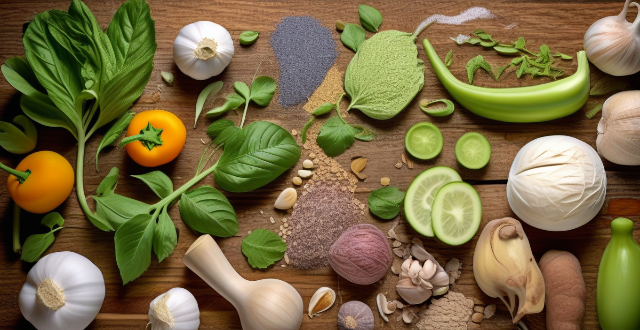
What ingredients are commonly used in Mexican cooking to create its unique flavor profile ?
The article provides an overview of the key ingredients used in Mexican cooking, including chili peppers like ancho, jalapeño, serrano, and habanero; herbs and spices such as cumin, coriander, oregano, and cilantro; and other ingredients like tomatoes, onions, garlic, lime juice, epazote, and hominy. It explains how these ingredients contribute to the distinctive flavor profile of Mexican cuisine and encourages readers to experiment with creating authentic Mexican meals at home.
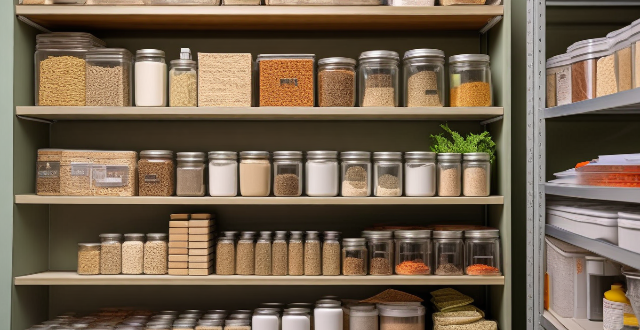
How long do homemade natural cleaners typically last before they lose their potency ?
Homemade natural cleaners' shelf life depends on factors like ingredients, storage, and concentration. To extend their lifespan, use high-quality ingredients, store properly, label with dates, avoid cross-contamination, and consider adding natural preservatives.

How do I choose eco-friendly cleaning products ?
This text provides a comprehensive guide on choosing eco-friendly cleaning products, emphasizing the importance of understanding eco-friendly labels, checking ingredient lists for harmful chemicals, opting for concentrated and reusable packaging options, supporting green brands, and considering homemade cleaners. By following these steps, consumers can make informed choices that contribute to a healthier planet and home environment.

What are some tips for beginners in baking ?
Baking is a rewarding hobby that can bring joy and delicious treats to your life. Here are some tips to help beginners get started: 1. Read the recipe thoroughly before starting. 2. Use the right ingredients, fresh and as specified in the recipe. 3. Prep your ingredients beforehand. 4. Follow the recipe steps carefully. 5. Practice patience during the baking process. 6. Learn from your mistakes and keep practicing.

What are the key differences between classic and modern cocktail styles ?
Cocktail styles have evolved over time, with classic cocktails representing traditional recipes and techniques, while modern cocktails often showcase innovative ingredients and presentation methods. Classic cocktails are known for their simplicity, limited ingredient list, standard measurements, traditional garnishes, and historical significance. Examples include the Martini, Old Fashioned, and Daiquiri. Modern cocktails, on the other hand, feature innovation, complexity, craft methods, visual appeal, and locally sourced ingredients. Examples include the Earl Grey MarTEAni, Smoked Old Fashioned, and Lavender Lemon Drop. In summary, classic cocktails pay homage to the roots of mixology, while modern cocktails celebrate creativity and the ongoing evolution of the craft. Both styles offer a unique drinking experience and cater to different preferences among cocktail enthusiasts.

What are some common mistakes people make when baking cookies ?
Baking cookies is a beloved pastime for many, but it can also be fraught with pitfalls. Here are some common mistakes people make when baking cookies: Not measuring ingredients accurately using volume measurements instead of weight, incorrect use of measuring tools, not sifting dry ingredients, overmixing or undermixing the dough, handling the dough too much, not preheating the oven, not using an oven thermometer, placing cookies too close together, using inferior quality chocolate or nuts, substituting ingredients without adjustment, not bringing eggs and butter to room temperature, underbaking or overbaking, not rotating the cookie sheet, baking at the wrong temperature, storing cookies improperly, and not considering shelf life. By avoiding these common mistakes, you can elevate your cookie game and enjoy consistently delicious treats every time you bake.
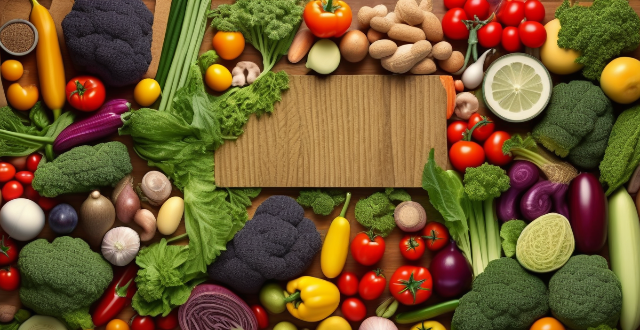
What are the most important things to look for when choosing organic food ?
When selecting organic food, key factors to consider include certification and labeling, freshness and quality, sustainability and environmental impact, as well as animal welfare and ethical sourcing. Look for products certified by reputable organizations and with clear labeling information. Choose fresh, high-quality products that are free from damage or spoilage. Consider the environmental impact of production and transportation, and choose locally sourced products whenever possible. If consuming animal products, opt for organic options from animals raised in humane conditions. Finally, support ethical sourcing practices and small-scale farmers to promote community sustainability and economic growth.